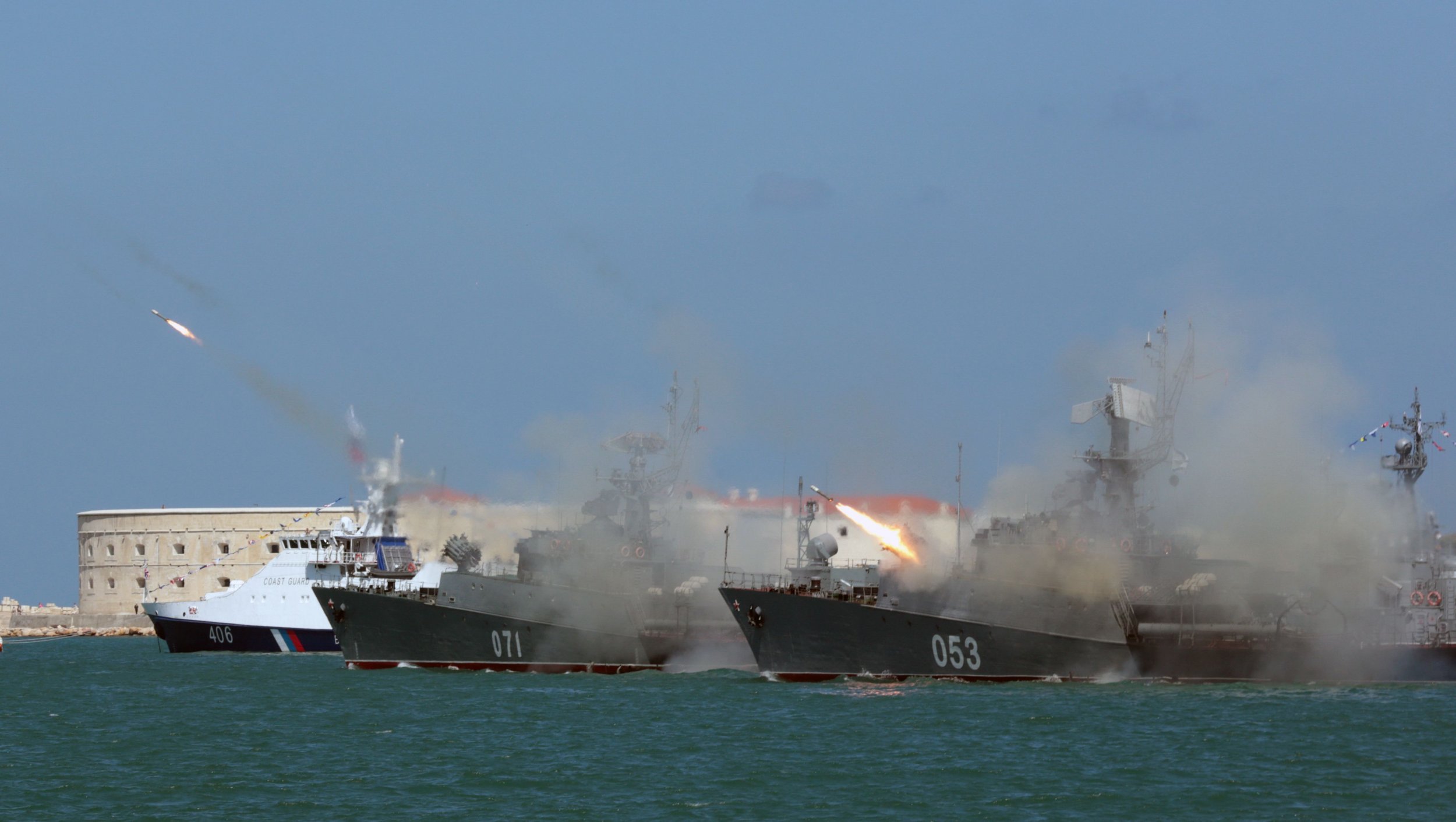
Russia has sent ships to the subarctic waters of the Barents Sea to practice anti-missile combat on on their first artillery fire drill of the year.
Russia's northernmost forces have operated a specialist command since 2014, geared specifically towards establishing a firmer foothold around the Arctic Ocean. The Kremlin has laid claim over the resource-rich North Pole, challenging rival claims made by the United States, Canada, Norway and Denmark, all of whom also have territory in the vicinity.
Russian President Vladimir Putin's last naval strategy paper, singled out the Arctic as an area where U.S. and other militaries are vying to establish an "intimidating supremacy" over Russia's forces.
Related: How Russian scientists got marooned in the Arctic, surrounded by polar bears
Russia's Northern Fleet kicked off the year by sending ships from its Kola flotilla on their first artillery fire drill of 2018. The missile frigate Iceberg and the anti-submarine corvette Yunga sailed into Barents waters, simulating a response to a cruise missile from a hypothetical enemy, a statement by the Russian defense ministry said on Wednesday. During the course of the drill, the two ships also practiced responding to an air attack, returning fire with anti-aircraft missiles.
The Russian navy is hard pressed to recover some Soviet-era capabilities in Russia's vast northern coastline, stretching along the entire length of the important Northern Sea Route. As ice has begun to retreat from the shipping passage in the world's most frigid waters, ships have begun to take advantage, but after years of pouring resources towards enforcing other Russian borders, the Kremlin has pushed for more long-term presence in its sub-Arctic regions.
The Russian military recently welcomed its first new icebreaker in over 30 years, as the Ilya Muromets vessel sailed into its ranks last year and Moscow has commissioned a series of bases in northern regions, giving troops the infrastructure to mobilize presence there, if needed. These facilities will likely include firepower to push back attacks by sea and air, but also fill in blind spots in Russia's radar coverage.
"The problem with Russian defense is that until recently the Russian military had a huge gap in its radar coverage on its Arctic coast," Russian military expert Igor Sutyagin told Newsweek after the unveiling of Moscow's latest Arctic station. "It meant that virtually everybody could enter the waters without notice. Now you need radar so you are just aware of what passes through."
Uncommon Knowledge
Newsweek is committed to challenging conventional wisdom and finding connections in the search for common ground.
Newsweek is committed to challenging conventional wisdom and finding connections in the search for common ground.
About the writer
I am a Staff Writer for Newsweek's international desk. I report on current events in Russia, the former Soviet Union ... Read more
To read how Newsweek uses AI as a newsroom tool, Click here.








